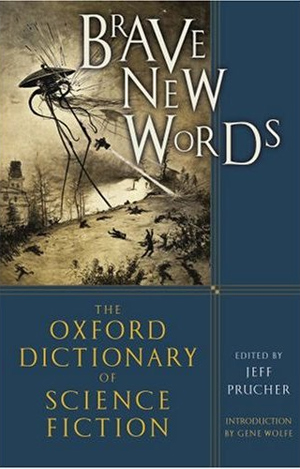 My recreational reading ebbs seasonally in a manner generally corresponding to the release of select DVD sets. While I prefer to keep my fanboy side from showing too prominently, my recent excuses for letting the books pile up include the second season of Battlestar Galactica and Season 3 of Stargate Atlantis.
My recreational reading ebbs seasonally in a manner generally corresponding to the release of select DVD sets. While I prefer to keep my fanboy side from showing too prominently, my recent excuses for letting the books pile up include the second season of Battlestar Galactica and Season 3 of Stargate Atlantis.
For me, the best science fiction explores our relationship with and the limitations of technology, and both TV shows do so in different ways. Echoes of 9/11 add depth and spark to the remake of Galactica. In Stargate SG-1 and its spinoff, Stargate Atlantis, alien tech — allied with clever writing and a great sense of fun — jumpstarts humanity's exploration of space, which (so far) culminates in the Pegasus Galaxy.
I had Stargate in mind when I first picked up Jeff Prucher's Brave New Words: The Oxford Dictionary of Science Fiction. Writers, not scientists or technocrats, were the first to coin terms like "cyberspace," "blast off," "grok", and "robot." The latter term, seemingly so quintessentially modern, comes to us from the 1923 Czech play R.U.R. (Rossum's Universal Robots).
The language of science fiction permeates mainstream language and culture, but this influence has been largely unrecognized, writes Prucher. Brave New Words is the first serious effort to correct this. Citations from the literature illustrate how science-fiction terms and their associated concepts have emerged over time. You'll be surprised to find how and when some terms appeared.
So, who coined the word "stargate" for a device that transports matter from one point in the universe to another in a manner that bypasses intervening space? Arthur C. Clarke, in his 1968 novel 2001: A Space Odyssey. (So that's how Keir Dullea got into the posh hotel room.)
Even language from the Stargate SG-1 TV series has slipped from its fictional moorings and into our own world. If you think asteroid 99942 Apophis was named entirely for an ancient Egyptian god, think again.
The book in brief: Brave New Words: The Oxford Dictionary of Science Fiction, by Jeff Prucher, 384 pages, Oxford University Press, 2007, hardcover, $29.95